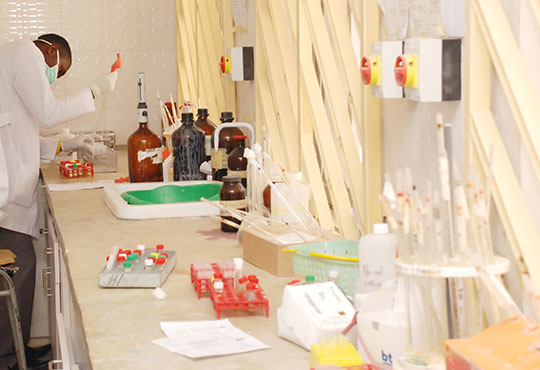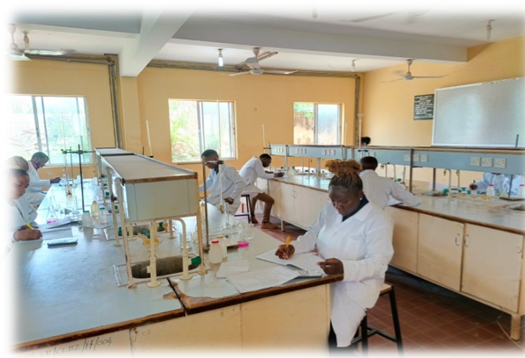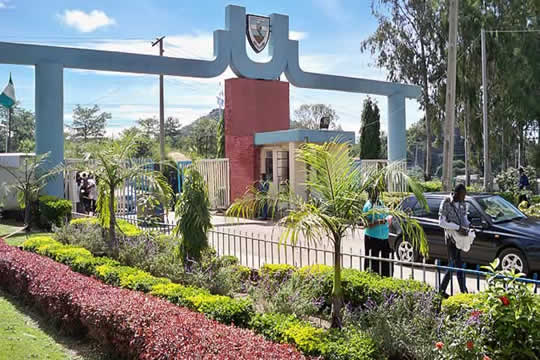UNIVERSITY OF JOS
(OFFICE OF THE VICE-CHANCELLOR)



The vision of the Department is to produce graduates with a broad-based knowledge who would be job creators rather than job seekers. It is intended that such graduates should be capable of working in various areas of human endeavor where Science Laboratory Techniques could be used for human development and research.
The Department is committed to the application of Science Laboratory Techniques as a solution to societal problems. Broad laboratory skills are also impacted through teaching of laboratory-based courses and qualities of results from laboratory experiments/analysis are utmost priorities.
CORE VALUES AND PHILOSOPHY
The Science Laboratory Technology Programme provides its students with a broad based knowledge of theoretical, technological and practical knowledge in the Multi-disciplinary fields of laboratory technology. The programme provides a five-year training to candidates that meet the minimum entry requirement for university education in Nigeria. It also aims at providing students with a broad balanced foundation of Science Laboratory Technology knowledge and practical skills
AIM AND OBJECTIVES
The aim of the Science Laboratory technology programmes to promote the utilization of our abundant human and natural resources for national development by providing students with a broad balanced foundation of Science Laboratory Technology knowledge and practical skills in the areas of:
iii. Purchase and maintenance of stock of laboratory and workshop materials
Candidates must have five credit passes including English, Mathematics and two other relevant science subjects at ‘O’ Level.
Candidates with Bachelor’s degree from an approved university must obtain a minimum of second class lower division with a CGPA of 2.4/5.0
The programme is open to candidates with Bachelor of Science degree in relevant options of Science Laboratory Technology with a minimum of second-class degree from a recognized University. Candidates with third class degree and/or HND with three years’ post qualification experience after obtaining Postgraduate Diploma (PGD) can also be considered.
The areas of specialization offered at the undergraduate level include:
i. Biological Sciences Techniques
ii. Chemical Petroleum Techniques
iii. Microbiology Techniques